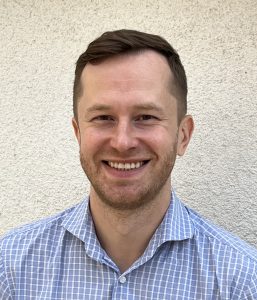 |
Maksim Rudnev, PhD | Curriculm Vitae |
| Current employer: University of Waterloo | |
| Key interests: basic values, social perception, moral attitudes, cross-cultural variability, complex SEM, mixture, and multilevel modelling. |
|
| Peer-reviewed publications: 32 | |
| Teaching courses: Basic data analysis, Multilevel Regression, SEM |
I am a quantitative social scientist interested in human values and social perception, their cultural variability, and data science informed by psychometrics. I have an MA in psychology, a PhD in sociology, and a substantial training in statistics and psychometrics. I have lived and worked in three countries and have taught methods at various levels.
I am intrigued by how people develop their values and worldviews across various countries and cultures. I believe this mystery can be unraveled through various scientific methods which I take very seriously. This belief shapes my dual-focused research interest: understanding the substance of cultural (in)variability and the methods intrinsically linked to cross-cultural inference.
Cultural variability
For over a decade I have been studying basic human values in Russia and other countries. Specifically, we’ve demonstrated that, contrary to a popular belief, Russians are not predominantly collectivists but pretty much the opposite – their average level of self-focused values (self-enhancement) is notably high. However, this doesn’t imply that all Russians, or the populations of other countries, are all the same. As highlighted in another study, people share very different values and their country of residence is merely one of many factors affecting their values. Moreover, individuals can adjust their values based on their cultural environment. Interestingly, not just the importance of values differs across cultures, but also the relations between values – For example, in less affluent countries, self-transcendence (altruistic) values closely align with conservation (tradition and security) values, whereas in wealthier countries, these values are quite independent.
Overall, values are integral component of human personality and correlate with important behaviours such as alcohol consumption and political participation as well as crucial attitudes. I’ve delved into one of the latter – justifiability of euthanasia, and demonstrated that it was particularly close to its underlying values of autonomy and (lack of) religiosity but at the same time prone to change.
While personal values can be seen as a perception of self, more recently, I got interested in social perception of others. In this new line of research, we already demonstrated that perception of older adults’ status has a solid economic background but at the same time is attenuated by culture: country’s communist past and Muslim background. In an upcoming paper we reveal that the extent to which someone is deemed wise comprises two universal dimensions (reflective and socio-emotional). Interestingly, while participants from various cultures acknowledged their shortcomings in using logic and tendency to think, they largely viewed themselves as exceptionally astute in socio-emotional awareness.
At the moment, I’m investigating the ways to measure human wisdom and intellectual humility. In addition, I pursue my interest in basic values, and currently look into value dynamics using both survey data and social media users activity.
Methods of cross-cultural inquiry
As a critical user of social science methods I often make a special effort to make sure my conclusions are reliable. When studying values, I’ve investigated the overlap between different approaches and evaluated the necessity of the commonly applied procedure called ipsatization. When examining attitudes towards euthanasia, I was curious about the potential biases introduced by popular single-item measures of justifiability. My dedication to cross-cultural studies converged in my keen interest in measurement invariance. I’ve explored the application of measurement invariance techniques to second-order factor models,the quantification and visualization of non-invariance across groups,introduced the notion of stratified (or clustered) invariance, and pondered the ways of testing invariance in the latent class models. I’ve also applied a number of the cutting-edge methods of testing measurement invariance in the context of well-being [a, b], moral vitalism, moral expansiveness, religiosity [a,b], and COVID anxiety.
Currently, I am involved in several methodological projects. First is aimed to improve understanding and document the best practices of measurement invariance methods. Second, I am developing an R package MIE featuring a method for identifying clusters of invariant groups in a network-like representation. Finally, with a group of collaborators, I work towards reframing measurement invariance framework in terms of possibilities for an applied researcher.
🇺🇦 I condemn Russia’s aggression against Ukraine.